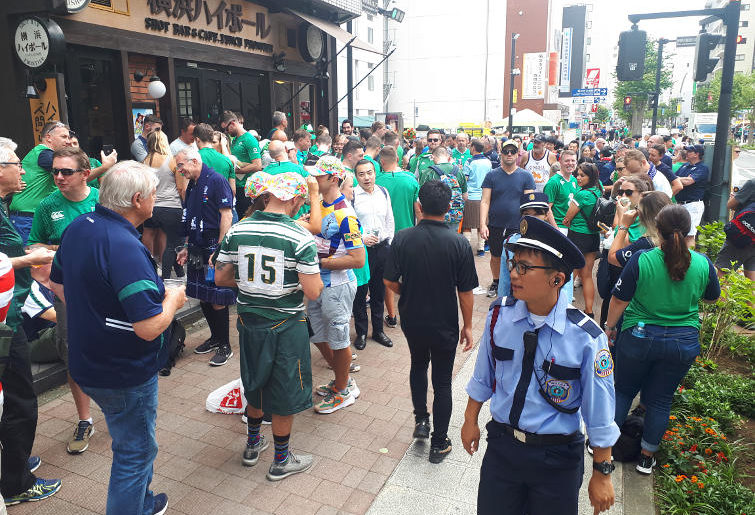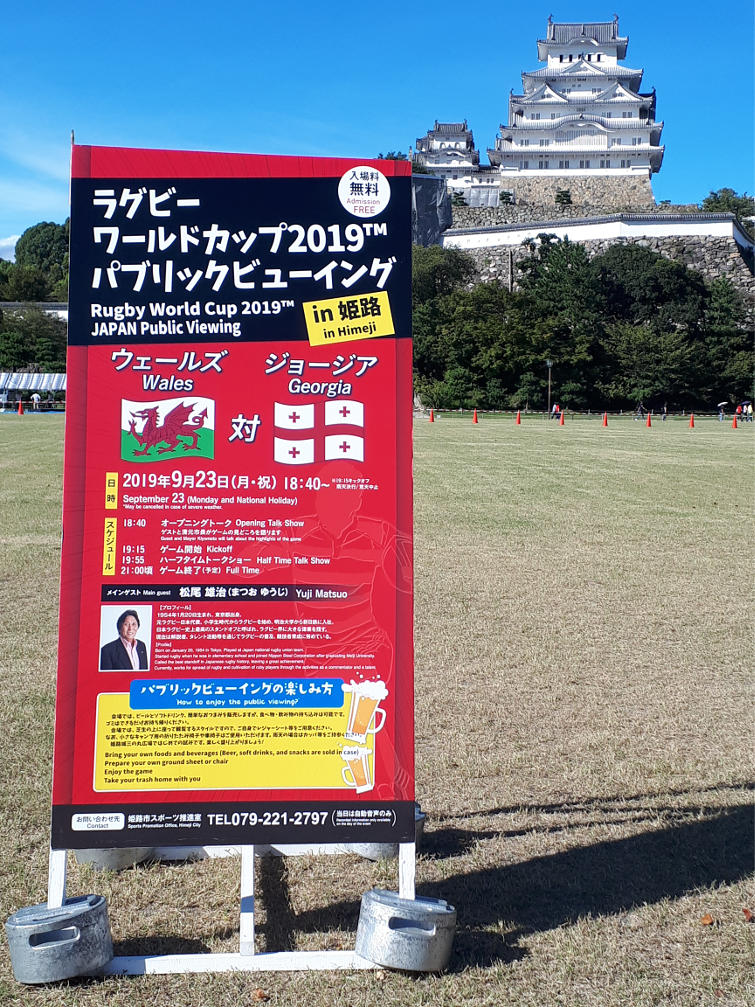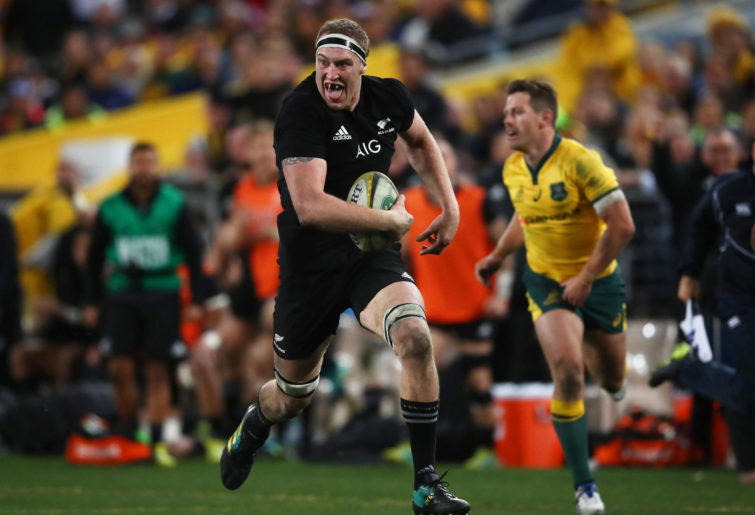World Cup rugby has taken over Japan, not just in Tokyo, and not just in other venues where games are being played.
But in smaller centres where fields are being taken over, fan zones are being set up and the public can watch live rugby as a collective. I was in an English pub in downtown Tokyo when Japan played Russia in the opening game and it was standing room only, with 80 to 90 per cent of the patrons Japanese and the remainder – Aussies, Brits, South Africans, French, Argentinians and Kiwis – all cheering the local team on. Awesome night.
At Yokohama Stadium the next day, the spectators were predominantly supporting New Zealand. The All Blacks have superstar status here. Travelling to Yokohama with thousands of fans I could have easily thought I was in New Zealand heading off to a home game.
Former All Black great Tana Umaga got in at one stop along the way. And from there until he reached the stadium people would come up to him and shake his hand or ask for a selfie – it was relentless – and he took it all in his stride.
The next day the Irish appeared on the trains and in the streets and at the stadium. Their singing was deafening. Brilliant. Both inside and outside the stadium. And into the wee, and very wet, hours. A massive Ireland flag made its way around the stadium and there were areas of the stadium essentially green.

(Image: Malcolm Anderson)

(Image: Malcolm Anderson)

(Image: Malcolm Anderson)
All this is not lost on the team itself. And it’s the atmosphere that makes it all truly memorable. And maybe remarkable, given that Japan is not known for its rugby like the typical tier one countries. That may well change after this Rugby World Cup.
Now – a few days later – the big teams have finally had a chance to release some energy and get their games going, and we’ve all got some evidence to back our claims about which team will win the Cup. It’s New Zealand’s to lose.
The All Blacks have started the tournament with the essential personal ingredients of belief, attitude, commitment and confidence. Belief that they can and will retain the William Webb Ellis Trophy. This belief translates into an attitude going into each game that they will play eighty minutes of winning rugby.
There is a constant commitment during the game to do just that – never slowing down, and resolving to not let the opposition cross the tryline. Just look at the skills Richie Mo’unga showed as he stopped Cheslin Kolbe – his thinking, his turning, his acceleration and the perfect tackle.
There’s confidence – confidence in oneself and confidence in your teammates. Again, look at Beauden Barrett in that same play as an example. He ran the ball out from behind the line (and was quickly supported by others).
And then there is fitness. The All Blacks like to play at pace – and for 80 minutes. And they can. You could tell in that opening match that the Springboks got tired. Other teams too will try to slow their games down with New Zealand.
Take all these attributes and make them stick for 80 minutes. Aside from individual skill (in all the teams), there is the under-rated factor of support play – look at all those times where the player with the ball is able to offload quickly to teammates to keep the play moving forward.
All this is at pace, which is enabled by Aaron Smith. He is pivotal to the All Blacks style of play. The mental and physical pace of the team is a critical part of what drives Steve Hansen’s selections.
Then there is the x-factor. With the emergence of Sevu Reece and George Bridge, the New Zealand backline has a stunning array of pace and quick thinkers who read the game intelligently, as well as being resolute in defence. And we already know about the playmaking attributes that Mo’unga and Barrett provide.
Games are won and lost in the forwards. Ireland dominated Scotland in the forwards and Wales and England will be hoping to do the same against the stronger opposition they face.
New Zealand withstood South Africa’s physicality extremely well. If, as it looks, it will be an Ireland versus South Africa quarter-final, expect it to be won or lost in the forwards, with a lot of carnage that will not bode well for a semi-final or final. And back Ireland to take the game unless South Africa decide to get the ball out to their wings quicker, and much more often.
The top teams all have forward packs that play as a cohesive unit – a collective understanding of what is happening and what needs to happen. Set plays are always critical, and an opportunity to slow the game down.
The past few All Black matches have been without Brodie Retallick, and the forwards have shown that their set plays are rock solid. Retallick will be back soon, which only strengthens the team further.

(Photo: Matt King/Getty Images)
The trick is to integrate solid set plays with collective ruthlessness at speed around the field. Other teams will need, at a minimum, to match the relentless aggressiveness and pace of Ardie Savea, Sam Cane and Kieran Read. If teams want to beat the All Blacks, they will have to be fast at the breakdowns, and for 80 minutes.
Steve Hansen does have some tough choices ahead of him on the selection front. He is probably already 90 per cent certain of his starting XV for the quarter-final – likely against Japan or Scotland – but he needs to give some players game time to be sure that key players have the right blend of match play and rest. Right now, there are no show-stopping injuries, and ideally games against Canada, Namibia and Italy will not result in any.
So at this point, New Zealand have shown intent and plenty of skills. Among other things, the top contenders will need to up their games and show plenty of diverse tactical ability – especially out wide – if they are to beat the All Blacks.
Every coach and player will say there is still plenty to work on. The All Blacks are no exception – it’s absolutely possible to beat them.
For now, though, the All Blacks are moving forward relentlessly.
This is what they will be doing until the end of the tournament. Unless the other teams have an array of strategies, tactics and skills still in their back pocket, they will need to play catch-up, and quickly, if they are to prevent New Zealand from taking their third consecutive World Cup.

































































































